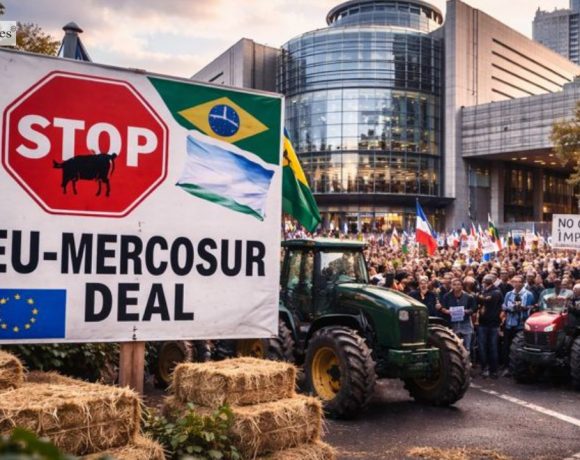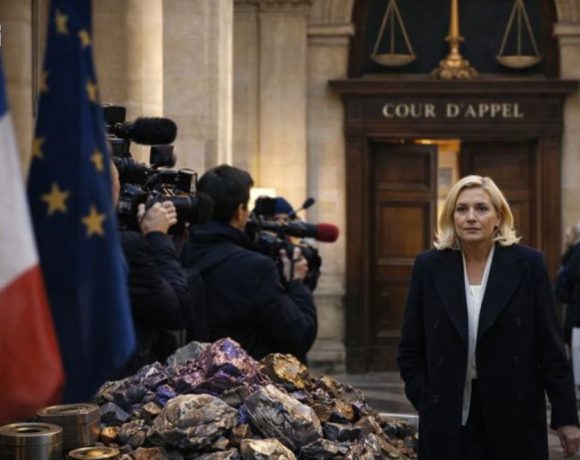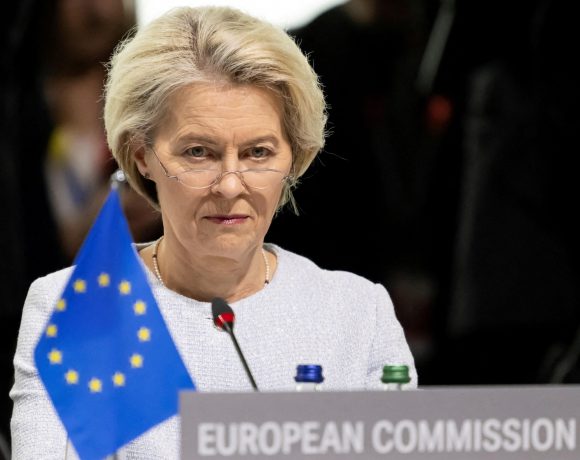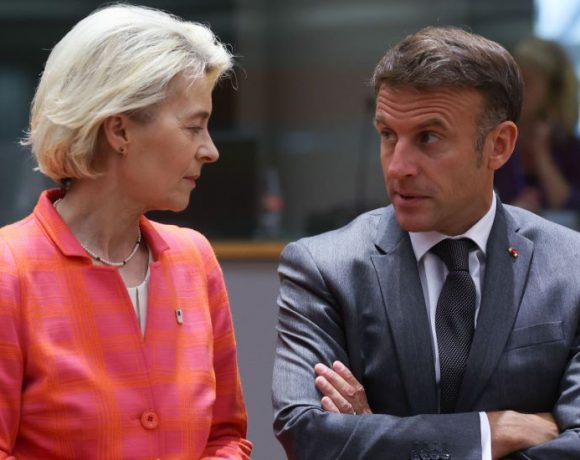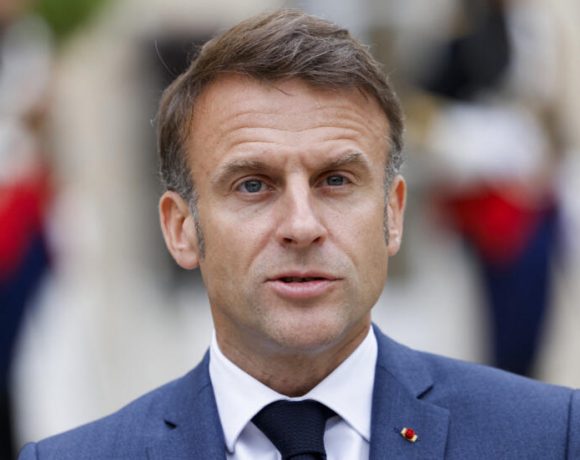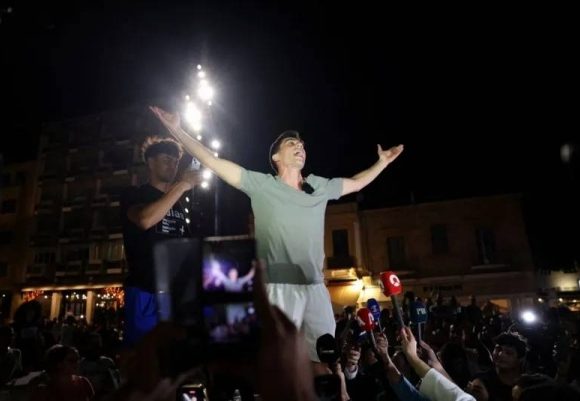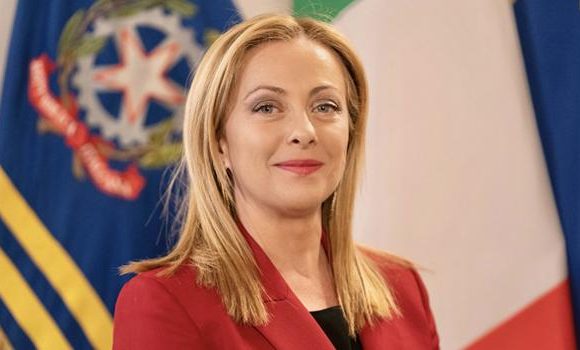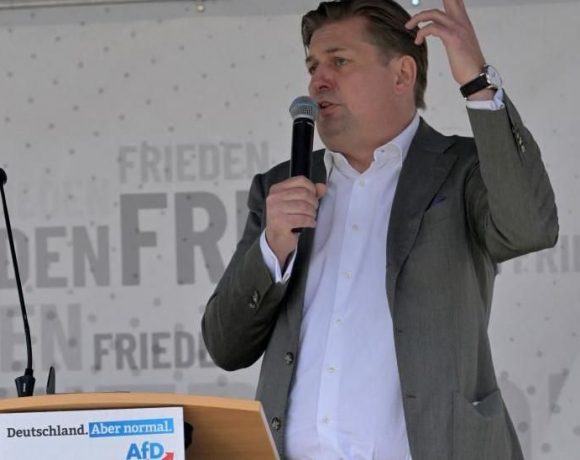Across Europe, there’s a significant pushback against green policies, termed a “greenlash.” This contrasts starkly with the sentiment during the last European elections five years ago, when especially young voters were fervently demanding action against climate change.
The current resistance is fueled by soaring energy prices, partly due to Russia’s war in Ukraine, and a broader cost of living crisis, prompting many Europeans to reconsider the move away from fossil fuels. Additionally, farmers across Europe have staged roadblocks in protest against environmental reforms.
This shift could pose a serious challenge for the EU’s Green parties in the upcoming elections from June 6-9. The Greens/European Free Alliance (G/EFA), currently the fourth-largest group in the European Parliament, might see a 30% reduction in their seats according to most polls. Terry Reintke, the Greens’ lead candidate, warns that if right-wing groups gain more influence, they could obstruct substantial parts of the parliament’s agenda.
Such an outcome could significantly affect the implementation of the EU’s Green Deal, part of the Climate Law aimed at achieving carbon neutrality by 2050. Some measures have already been enacted, like the package to cut net greenhouse gas emissions by 55% of 1990 levels by 2030, which includes a contentious ban on petrol and diesel cars by 2035. However, many policies essential for meeting 2040 targets still need to be agreed upon, and existing directives could be modified under sufficient political pressure.
Right-wing parties across Europe have quickly responded to public discontent, balancing costly decarbonization processes and green investments against the cost of living crisis. In Italy, Matteo Salvini of the far-right League criticizes the 2035 ban on petrol and diesel cars, viewing it as a “gift” to the Chinese electric car industry. Hungary’s Viktor Orban supports farmers protesting in Brussels and accuses European leaders of ignoring ordinary people.
In Germany, backlash over plans to ban new oil and gas heating systems almost toppled the coalition government, leading to a watered-down policy. The far-right AfD, decrying an “eco-dictatorship,” is challenging for second place in the polls. Similarly, in the Netherlands, government plans to reduce nitrogen oxide emissions sparked farmer protests and boosted the Farmer-Citizens Movement (BBB), now set to join a coalition with Geert Wilders’ Freedom Party, which aims to roll back green policies.
Sweden, once a leader in climate action, has seen its government, supported by the far-right Sweden Democrats, criticized for policies that could increase emissions. In Spain, the far-right Vox party denies human-caused climate change and seeks to undo recent green policies.
Hannah Neumann, a German MEP from the Greens, refutes the radical right’s narrative that economic competitiveness and climate protection are mutually exclusive, emphasizing that the global shift towards net zero includes major economies like the US and China. She warns that the EU risks falling behind if it slows its green transition.
However, center-right parties also challenge the speed and cost of this transition. The European People’s Party (EPP), the largest group in the European Parliament, has long opposed the 2035 ban on petrol and diesel cars. Farmers’ protests have also led to reversals of Green Deal policies, such as scrapping a proposal to halve pesticide use.
Jessica Polfjärd, an MEP from Sweden’s Moderate Party, acknowledges the urgency of climate issues but stresses the need for realistic and balanced policies. She argues that overly ambitious green policies have not provided industries with adequate tools for the transition and that their impacts need thorough assessment.
Despite the backlash, climate change remains a significant concern for European voters. A recent Eurobarometer survey found that 78% of respondents feel environmental issues directly impact their lives, and 84% believe EU environmental legislation is necessary. Yet, only 58% want to speed up the transition to renewable energy, with cost of living concerns dominating the current campaign landscape, potentially leading to significant losses for the European Greens compared to five years ago.
Picture Courtesy: Google/images are subject to copyright
